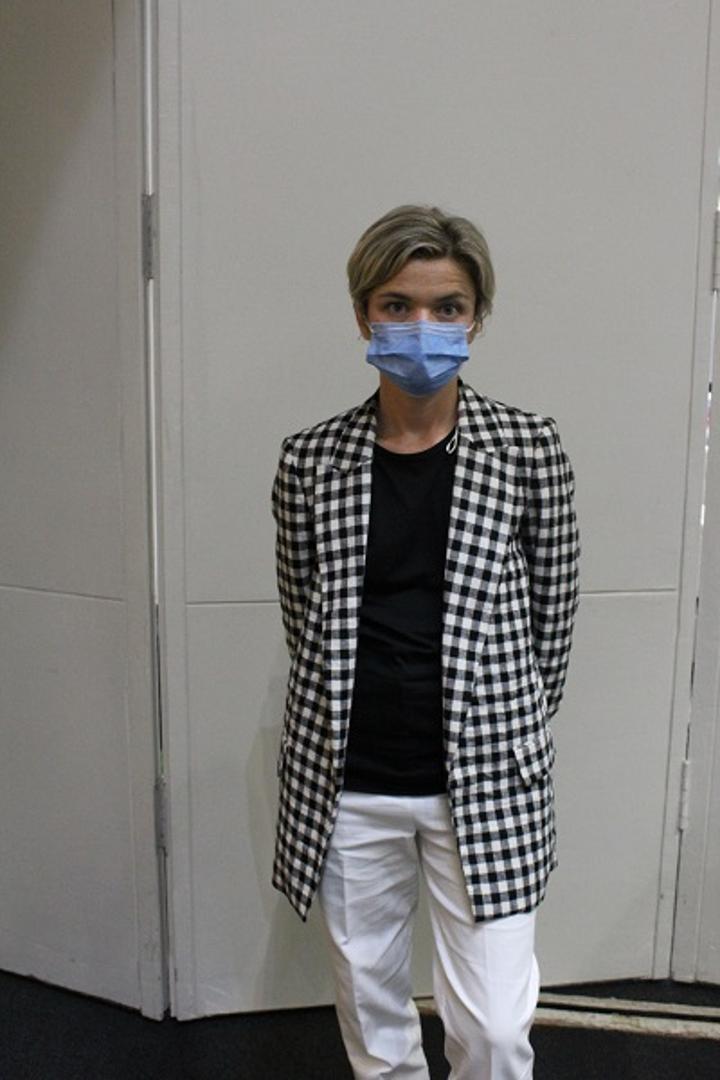Africa-Press – Lesotho. World Food Programme (WFP) and Disaster Management Authority (DMA) held a two days’ workshop in which stakeholders assembled to discuss issues affecting the urban preparedness
project, which is designed to help vulnerable people living in the urban areas. The workshop ran from Tuesday to Wednesday this week. In an interview with Informative
Newspaper, the United Nations World Food Programme, Regional Bureau for South Africa Progamme Policy Officer Arianna Francioni explained that the aim of the project is to establish a
better understanding of the urban environment, to identify the most vulnerable categories in urban areas and how the vulnerability can best be addressed.
“Covid-19 has exacerbated vulnerability of communities, making it necessary for us to collaborate with government
authorities to respond to and address the urban poor, this is essentially the main objective of the project,” Francioni stated. She pointed that the urban
areas are mostly sidelined when it comes to social assistance hence the project aims to alleviate that by defining the current coordination in communication
systems amongst the stakeholders and how coordination can be enhanced to ensure that fast response is provided. She noted that urban issues are not addressed across
the region by many social protection assistance and insurance programs. According to DMA Chief Economic Planner Pulane Makitle, this project will greatly benefit Basotho as it aims to
promote coordination between different departments. She said they realize challenges after implementation of Disaster Risk Reduction (DRR) in most sectors.
“Lack of integration of DRR across most sectors is related to mandates, structures, mechanisms, strategies, regulations at nationaland local levels. Again, there were challenges understanding Food Insecurity in Urban Settings.
The other encounter is that urbanization has been driven by uncontrolled compression of urban areas, conversion of rural space into urban areas and accelerating rural to urban migration, that is, people are pulled to
the city for economic reasons, particularly employment and educational opportunities,” she said. She also highlighted that unplanned urban development and poor enforcement of
regulations lead to increased density within the urban settlements and uncontrolled urban slump on its margins. She stipulated that informal settlements are increasing,
with squatting particularly prevalent in vulnerable areas such as the valley’s riverbanks, rocky hills and bursting dams. “Poor patterns of land use and
construction mean that access for emergency services and relief agencies will be extremely challenging given the debris that will accumulate on the city’s
narrow roads. Reacting to the programme, Leribe Town Clerk Lesibo Molalle acknowledged the capacitation. He, however noted that it is the duty of the communities to handle and mitigate other disasters
rather than always expecting DMA to take responsibility. The project is funded by European Union (EU) civil protection and humanitarian aid and it started in September 2021 in Maseru, Mafeteng, Leribe and Butha-Buthe. This project has also been carried out in Mozambique, Madagascar and Zimbabwe.
For More News And Analysis About Lesotho Follow Africa-Press






